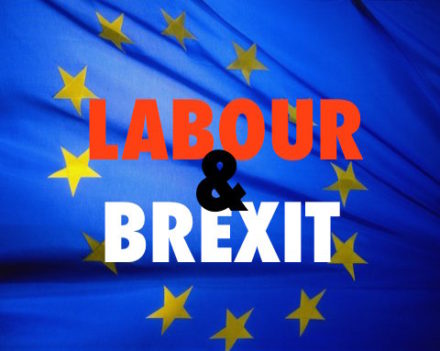
It has been the greatest constitutional and political crisis of most of our lifetimes but Brexit – bar some fringe events – felt rather absent from Labour conference.
Now, in the week of Tory conference, Britain’s withdrawal from the EU once again takes the spotlight, as warring Cabinet ministers each seek to define the road to Brexit on their terms. It seems, above all else, that the Daily Express is winning.
It feels quite an abandonment, then, that there are only a few Labour voices making themselves known. As with messaging in general, the Tories dominate. “Brexit means Brexit” may seem daft to the nerds among us that follow politics minute-by-minute, but a general rule of politics goes as follows: if we are laughing at it, it’s working.
The rigid consistency of this message by Theresa May and the Tories means they are getting it. Hard Brexit is winning. The only Labour voices speaking up are those that are adding to that chorus. Calls to abandon free movement are the only calls in town, and they strengthen the Tory hand.
Most of Labour’s heartlands voted to Leave. It is without a doubt an uncomfortable and conflicting time for our MPs. The age-old fight between your own values and that of your constituents takes centre stage. A conflict more important than that being the fight between appreciating empirical facts versus voter perceptions. It is imperative we do not dismiss voters, of course, in their concerns. There are good cases to be put forward for the economic benefits of immigration, as well as understanding those benefits are not equally distributed throughout the country, and understanding the need to control exploitation and wages being undercut. Yet more than anything, we shouldn’t abandon the economic facts.
But a danger is that we, as Labour, believe concerns are entirely economic. We shift the argument – and this was done a lot in the fringes I attended at conference – to talk about wages and conditions without realising the cultural dimension, or indeed simply reject what we didn’t like to hear on the doorstep. We take ourselves away from the culture war, and leave it to the reactionaries and Tories pushing for Hard Brexit.
This side of the “war” was played upon not just by UKIP, but by the Leave campaign more generally, even if they tried to disassociate themselves. There was nothing economic about the intent of the Turkey posters. There is now nothing economic – certainly, it will make the country worse off – than calls to make precarious the lives of non-British NHS staff and students. This is a battle being thought by sensationalist headline, and by implication, on cultural lines.
There is a case for a Patriotic Left to tackle the cultural, not just economic themes. How that is done will take a lot of soul-searching but also keeping to our values, defining patriotism on our own terms. But right now, far from dismissing voters, there’s no alternative case being put to them by the Left and progressives in terms of the cultural dimension.
Why, then, are we not using our greatest and most authentic voices on the case of defining Brexit, Britishness and integration? The airwaves are dominated by talks about towns that have been “changed forever” and communities that are no longer recognisable, with public services under the reign of nurses that don’t speak English, or schools that don’t celebrate Christmas, with no challenge. Those that have immigrant heritage, or indeed none at all, quiver when we see these headlines and watch them repeated in the conference hall.
High-profile progressives are not even present. We keep to what we want to and narratives trying to paint migrants as self-excluding from our communities. This is about putting forward a counter to the nativist voices that are loudest and that will influence this PM with a history of dogwhistling, in our Brexit negotiations, particularly those surrounding free movement. In doing so, we risk, or perhaps we have let happen, the “take back control” slogan becoming a dog whistle. And the debate over the coming weeks, months and years, risks being defined by a dangerously cultural fightback against free movement while we are still squabbling over just one half of the story.
Now, more than ever, we need to put forward the success stories of migrants and integration more widely. For those of us that live in multicultural communities, or those of us that have parents who are migrants and feel happily British, we will know that our model of integration works. And it works far better than the French system of assimilation.
The facts are clear. We need voices in Labour to talk about the realities of becoming British, and that, in fact, you can actually become British. It is a hyphenated society, not an exclusive one. And we have many talents who prove this. Sadiq Khan, born in London to British-Pakistani parents, is perhaps the greatest success story of integration and of an open patriotism. But we have many, both in our party and in our communities. We need a space for those voices and those stories.
This is not about dismissing economic turmoil in our communities, but it is about defining how Brexit is talked about, and that we put forward another side in a battle with two dimensions. As Brexit becomes harder and harder so, we may feel our voices are relevant on the economics, but we are nowhere to be found on the cultural argument.




More from LabourList
Government abandons plans to delay 30 local elections in England
‘The cost of living crisis is still Britain’s defining political challenge’
‘Nurses are finally getting the recognition they deserve’